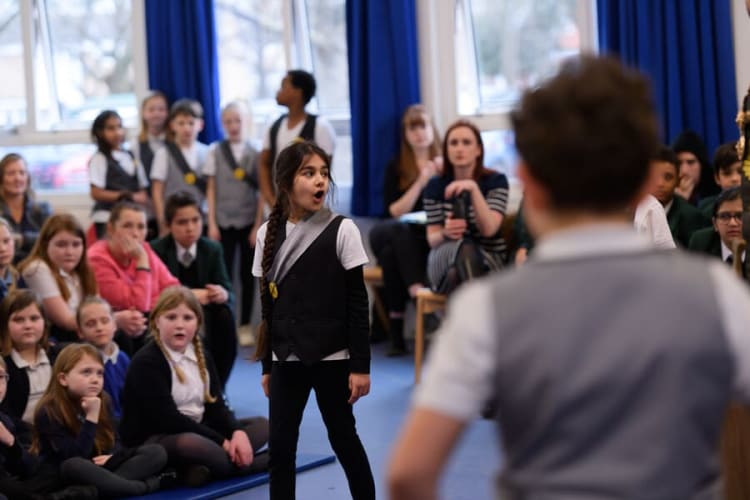Shakespeare’s work and approaches to teaching by the Royal Shakespeare Company lead to social and emotional development of children and young people, a study has found.
Time to Act, funded by the Paul Hamlyn Foundation, reveals a “positive connection between the combination of Shakespeare’s language and RSC teaching on children’s academic, social and emotional development”.
The study included a trial with year 5 pupils at 45 state primary schools across the country that had never worked with the RSC. The research showed that after 20 hours of teaching using RSC methods, children had a “richer, broader, more sophisticated vocabulary, better understanding of linguistic structures and increased confidence and knowledge of words and language”.
RSC director of creative learning Jacqui O’Hanlon said, “the results provide data that supports what we’ve known for many years—that arts education plays a significant role in improving the life-chances of young people. Expressive arts subjects and experiences significantly contribute to children’s development.
“We know that talent is everywhere but opportunity isn’t. We want all young people to be resilient and feel confident in their ability to overcome challenges and solve problems. These are capabilities that expressive arts subjects build and which young people will use throughout their lives.”
Further details of the Time to Act study are available at the Royal Shakespeare Company web site.
